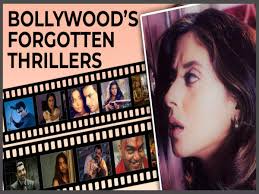Biographical thrillers based on real life incidents redolent with suspense and drama—these have made a distinctive niche in Indian cinema. More than standard biopics, these movies home in on obscure details about famous people, mixing fact with movie magic. This article examines how those films have reset storytelling norms, changed the way we look at them, and determined the way forward for Indian cinema.

1. What Is a Biographical Thriller?
In a biographical thriller, the reality of someone’s life is distilled into a perspiration-inducing story the high-stakes revelation, the ethical quandary, the pulse-rattling pacing. These films are after something more than straightforward biopics (such as Dangal or Sanju), attempting, instead, to immerse us in voyages of discovery – stories of interior worlds being unpeeled, questions of ethics unravelled, or dramatic historical events lived through. They’re intended to be as edifying as they are thrilling.
2. Iconic Biographical Thrillers That Transformed the Genre
2.1 Sardar Udham (2021) – Shoojit Sircar
This deep dive into Udham Singh’s life presents a polished revenge thriller set against the backdrop of the Jallianwala Bagh massacre. Vicky Kaushal delivers a raw and absorbing performance as a man driven by trauma and justice, showcasing meticulous research and high-stakes narrative pacing (imdb.com, en.wikipedia.org, en.wikipedia.org).
2.2 Manto (2018) – Nandita Das
Focusing on Saadat Hasan Manto, a controversial Urdu writer, this film merges biographical detail with psychological tension and political critiques. Its structure—anchored by powerful acting and courtroom drama—earned numerous Filmfare awards and international acclaim (en.wikipedia.org).
2.3 Mahanati (2018) – Nag Ashwin
This cinematic exploration of actress Savitri’s life incorporates documentary-style interviews, flashbacks, and emotional revelations. The film, compared with Citizen Kane in structure and emotional resonance, engaged audiences through its narrative complexity and aesthetic precision (en.wikipedia.org).
3. Narrative Devices & Cinematic Techniques
• Non-linear Timelines
Films like Mahanati start at critical moments and rewind through flashbacks, building mystery and emotional gravitas.
• Tension Through Real Stakes
In Sardar Udham, every plot development echoes real historical trauma and consequences, heightening engagement with fact-based peril.
• Dual Characters & Perspectives
Manto uses courtroom drama, voiceovers, and close-ups to illustrate the conflict between creativity and censorship.
• Immersive Settings & Atmosphere
Thoughtful production design and cinematography transport audiences into historical eras, enriching the emotional stakes.
4. Impact on Indian Cinema & Viewers
✅ Expanding Genre Expectations
These films elevated audience tastes from mainstream entertainment to nuanced narratives rooted in history, realism, and emotional intelligence.
✅ Blending Education with Entertainment
Biographical thrillers educate viewers on independence movements, literary legacies, or gender discrimination while providing gripping, Hollywood-level thrills.
✅ Boosting International Recognition
Titles like Manto and Mahanati garnered accolades at Cannes and global film circuits, highlighting India’s evolving storytelling prowess (en.wikipedia.org, en.wikipedia.org).
✅ Inspiring Emerging Filmmakers
Success stories now fuel projects exploring unsung heroes showcasing a hunger for narratives beyond mythological retellings or sports biopics.
5. Future Trends & Exciting Announcements
🔜 Aamir Khan & Rajkumar Hirani on Phalke Biopic
Recently, Aamir Khan and Rajkumar Hirani announced a film on Dadasaheb Phalke the “father of Indian cinema.” Their reputable collaboration promises meticulous detail and narrative depth (timesofindia.indiatimes.com).
🎤 Other Untold Stories in Development
Reports suggest projects in regional languages featuring underrepresented figures such as freedom activists and artists—are gaining momentum.
🎯 Shift Toward Streaming Originals
Digital platforms like Netflix and Prime Video offer creative freedom, paving the way for tense, character-driven biographical thrillers unseen in mainstream theater.
Biographical thrillers Manto, Sardar Udham, Mahanati have changed the face of Indian cinema by bringing the suspense of a good story to real life. “Jean” and other movies work because they push past mere facts to expose buried emotions, ethical entanglements and psychological insights that can’t help but grip audiences. And with new releases such as the biopic of Phalke on the horizon, the genre is set to continue to push the boundaries while spotlighting untold stories that enlighten, move and delight.
FAQs
Q1: What makes a biographical thriller different from a biopic? A biographical thriller emphasizes tension, suspense, mystery, or psychological conflict, while a biopic focuses more on chronological portrayal and reputation-building.
Q2: Are these films historically accurate? They balance factual accuracy with storytelling needs. While rooted in extensive research, creative liberty—especially in dramatization or fatigue-building scenes—is common.
Q3: Which upcoming projects should viewers look out for? Aamir Khan and Rajkumar Hirani’s biopic on Dadasaheb Phalke is highly anticipated . Expect more regional biographical thrillers on unsung heroes, thanks to streaming.
Q4: Why have Indian audiences embraced these stories? These films offer cultural relevance, emotional depth, and the excitement of tension-driven storytelling—providing introspection alongside entertainment.
Q5: How can filmmakers ensure authenticity in biographical thrillers? Prioritize thorough research, involve historians or family members, accurately recreate settings, and balance fact with suspense organically—while acknowledging creative adaptation.